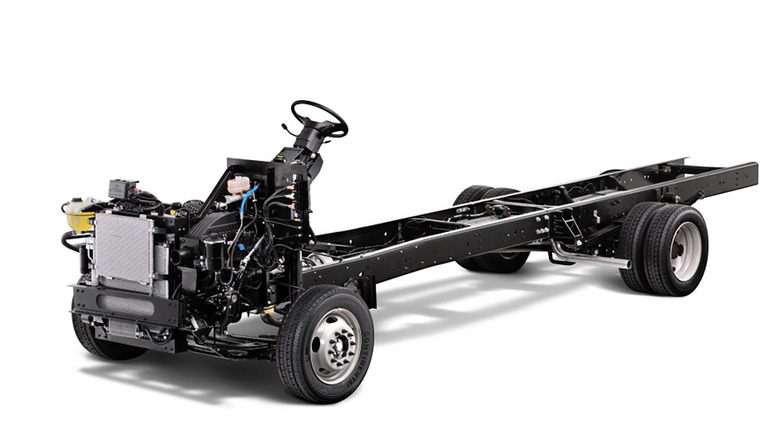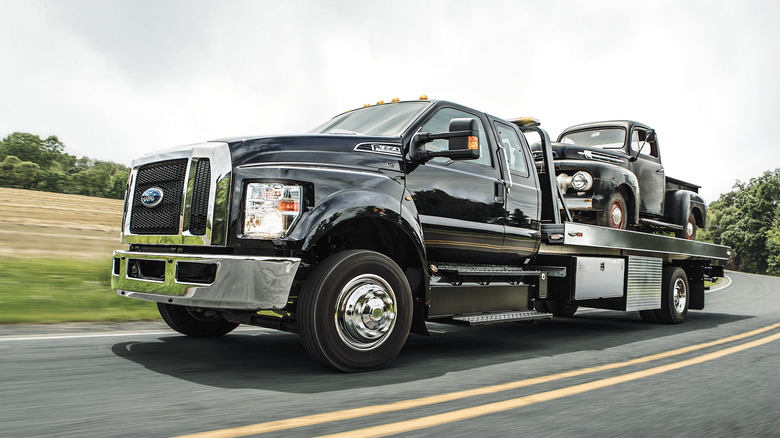Is The Ford V10 Triton Engine Any Good?
The Ford V10 Triton engine is the largest displacement power plant in the Blue Oval's Modular line and one of the biggest it puts in a consumer vehicle. With a displacement of 6.8 liters and plenty of pulling power, the naturally-aspirated Triton V10 has been used by Ford in a wide range of trucks and generally heavy-duty applications, such as towing, hauling, or powering motorhomes.
It was launched to replace the even larger 7.5-liter V8, which had been powering Ford trucks since the late 1960s. Being part of Ford's Modular family of engines, it shares its bore and stroke with the smaller 5.4-liter V8, and it has a bank angle of 90 degrees.
When it was introduced in 1997, the Triton V10 produced 275 horsepower and 425 lb-ft of torque, but its power output was increased over the years to 320 horsepower in the unit's most recent iterations. They also have slightly more torque, up to 460 lb-ft, in the F-650 and F-750 Super Duty pickups.
Ford launched an even larger displacement engine that it wants to replace the Triton when it is phased out, the 7.3-liter Godzilla V8, which is more technologically advanced and promises to deliver more power, efficiency, and dependability. As such, the V10's days are probably numbered.
How Dependable Is the Triton V10?
The V10 is regarded as strong and reliable, and you can find it in the F-250 and F-350, the Excursion large SUV manufactured between 2000 and 2005, or the F53 motorhome. Hot rodders have used the Triton to power their souped-up creations, custom off-road vehicles, and standalone generators.
There are some reliability concerns, the biggest being wear in the spark plug thread, especially among early units. This is because the heads are made out of an aluminum alloy, and worn-out threads can cause the spark plugs not to screw in properly and allow pressure to escape from inside the cylinders, causing a misfire or just generally affecting the running of the engine.
Another issue with these engines is the possibility of cracks in the exhaust manifolds. They can also develop fuel injector problems, and the cam phaser (a component of the variable valve timing system) is prone to wear, just like in the 5.4-liter V8 that the Triton is related to.
Considering the Triton is a big 6.8-liter gasoline V10 used almost exclusively in trucks, it's not particularly efficient if you compare it to the turbodiesel engines that are more common in heavy-duty applications. For instance, a 2012 Ford F-650 has an average fuel economy of 5.7 mpg, but users on the Ford Trucks Forum say they can get over 15 mpg out of their Triton-equipped Fords if they drive with a light foot (although most owners report they get closer to 13 mpg).

